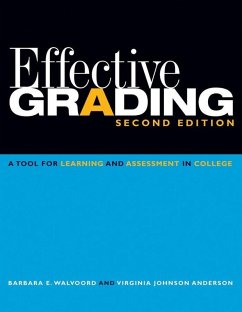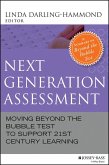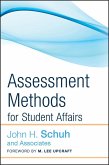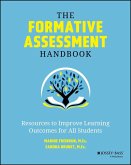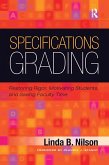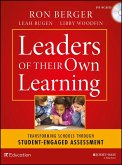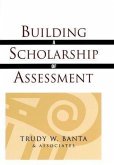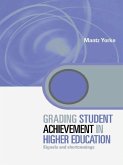The second edition of Effective Grading--the book that has become a classic in the field--provides a proven hands-on guide for evaluating student work and offers an in-depth examination of the link between teaching and grading. Authors Barbara E. Walvoord and Virginia Johnson Anderson explain that grades are not isolated artifacts but part of a process that, when integrated with course objectives, provides rich information about student learning, as well as being a tool for learning itself. The authors show how the grading process can be used for broader assessment objectives, such as curriculum and institutional assessment. This thoroughly revised and updated edition includes a wealth of new material including: * Expanded integration of the use of technology and online teaching * A sample syllabus with goals, outcomes, and criteria for student work * New developments in assessment for grant-funded projects * Additional information on grading group work, portfolios, and service-learning experiences * New strategies for aligning tests and assignments with learning goals * Current thought on assessment in departments and general education, using classroom work for program assessments, and using assessment data systematically to "close the loop" * Material on using the best of classroom assessment to foster institutional assessment * New case examples from colleges and universities, including community colleges "When the first edition of Effective Grading came out, it quickly became the go-to book on evaluating student learning. This second edition, especially with its extension into evaluating the learning goals of departments and general education programs, will make it even more valuable for everyone working to improve teaching and learning in higher education." --L. Dee Fink, author, Creating Significant Learning Experiences "Informed by encounters with hundreds of faculty in their workshops, these two accomplished teachers, assessors, and faculty developers have created another essential text. Current faculty, as well as graduate students who aspire to teach in college, will carry this edition in a briefcase for quick reference to scores of examples of classroom teaching and assessment techniques and ways to use students' classroom work in demonstrating departmental and institutional effectiveness." --Trudy W. Banta, author, Designing Effective Assessment
Dieser Download kann aus rechtlichen Gründen nur mit Rechnungsadresse in A, B, BG, CY, CZ, D, DK, EW, E, FIN, F, GR, HR, H, IRL, I, LT, L, LR, M, NL, PL, P, R, S, SLO, SK ausgeliefert werden.

